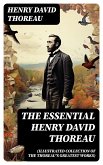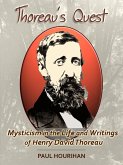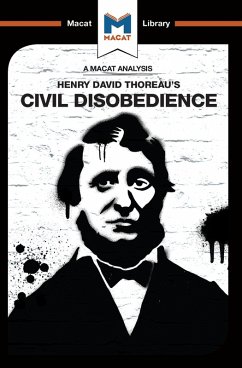The "Collected Works of Henry David Thoreau (Illustrated)" offers an extensive look into the mind of one of America's foremost transcendentalist writers. This volume encompasses Thoreau's essays, journals, and poetry, characterized by his distinctive literary style that blends romanticism with keen observations of nature and society. The illustrations complement his vivid prose, enriching the exploration of themes such as individuality, civil disobedience, and the interconnectedness of humanity and the natural world. Thoreau's reflections resonate within the transcendentalist movement of the mid-19th century, positioning his work against the backdrop of America's growing industrialization and societal change. Henry David Thoreau (1817-1862) was a philosopher, naturalist, and abolitionist whose experiences and beliefs profoundly shaped his writings. Living for two years in a small cabin at Walden Pond, Thoreau sought to connect with nature and to critique modern society. This period of introspection led him to articulate his views on simple living and self-reliance, grounding his scholarly pursuits in lived experience and environmental stewardship. This illustrated collection is a must-read for anyone seeking to understand the depths of Thoreau's philosophy and its relevance today. By immersing the reader in his eloquent prose and reflections, this volume not only honors his legacy but also invites contemporary readers to engage with his timeless insights on nature, society, and personal freedom.
Dieser Download kann aus rechtlichen Gründen nur mit Rechnungsadresse in A, B, BG, CY, CZ, D, DK, EW, E, FIN, F, GR, H, IRL, I, LT, L, LR, M, NL, PL, P, R, S, SLO, SK ausgeliefert werden.









